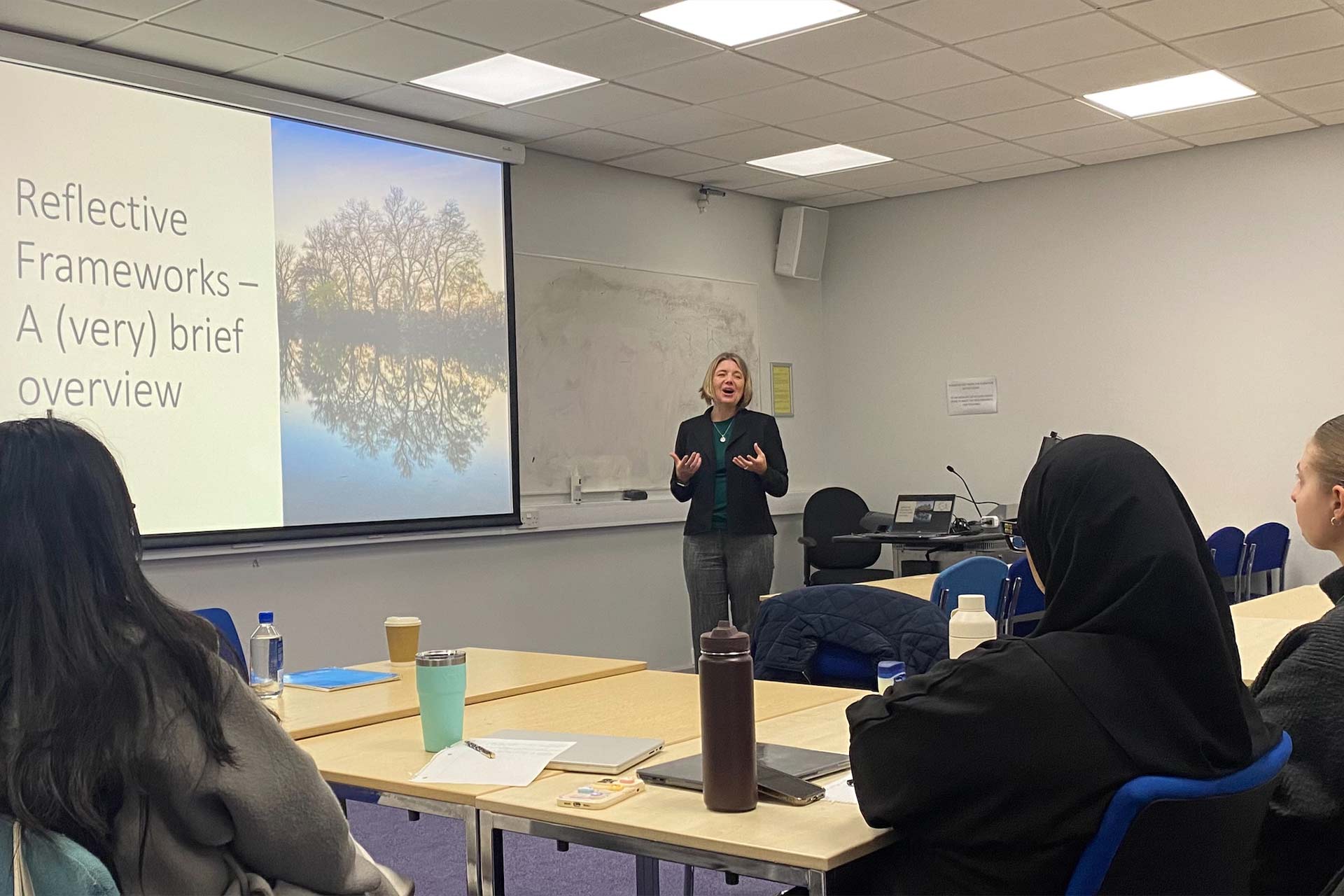
In a world of ever-increasing stress levels and shrinking attention spans, mindfulness comes as a solution. But when introduced to the classroom, can it meet its transformative promise, or is it yet another unviable trend?
Defined as “the quality or state of being conscious or aware of something” by the Oxford Dictionary, and often confused with meditation, mindfulness as a concept dates back to the 5th–4th century (known then as the Buddhist sati). In the early 1900s, it was more widely incorporated into psychological practice, and only after a century did it become a topic of greater consideration for educational research. Currently, it is gaining momentum by holding a promise of transforming the school systems. But is mindfulness understood well? Is its potential fully realised in educational settings?
On 17 October 2025, we had the pleasure of meeting Sebrina L. Doyle Fosco as part of our MA Education Reflective Practitioner module. Coming straight from Penn State University in Pennsylvania, USA, Sebrina first completed her postgraduate studies in Psychology. She then pursued her doctoral studies in Educational Leadership, culminating in her final piece: Fostering resilience and wellbeing in educational leadership. Realising the high-stress reality of school settings, the poor state of wellbeing among educational leaders and teachers, and consequently its detrimental impact on students, she focuses her research on workplace wellness, social‐emotional learning (SEL), and mindfulness‐based interventions.
In the session, after exploring some of the key reflective frameworks, we had the chance to engage in some of Sebrina’s recommended mindfulness practices. These included both activities aimed at self-enquiry and group practices. Starting with the individual, each of us was invited to reflect on our journeys and to recognise the importance of setting intentions in our daily lives. In a goal-based society, where people chase after ‘success’ and ‘achievement’, or simply not letting others down (whether that be a boss or a family member), pausing for a moment and reflecting on a mindset we would like to embody, among the chaos of reality, proved to our group to be a powerful way to gain perspective. Another tool we got to explore was active listening. A skill that seems to be fading into oblivion at an increasing speed, when nurtured, can be truly transformative in both an individual sense (in a form of self-enquiry, pausing and paying attention to the messages from both the mind and body, creating space for emotions to naturally flow), and an interpersonal one (giving others unbroken attention, validating their experiences).
These activities provided a glimpse into Sebrina’s idea of making mindfulness practices truly transformative, an idea that her research further reinforces. She highlights how the implementation needs to go beyond stress management techniques, fostering routine self-awareness and the ability to stay present in the moment, without judgment, in a variety of scenarios presented daily. Only this wider approach to mindfulness in practice can provide individuals, and teams, on all levels, from leaders, through teachers, to students, with a set of key tools that lay a foundation for holistic emotional wellbeing. To add to this, in her most recent paper, A Conceptual Framework for Whole‐School Implementation of Mindfulness Programs and Practices: Wisdom From the Field, she underlined that the practices can be more deeply and sustainably transformative, when aimed at whole-school systems rather than individual groups (students, teachers, leaders).
Returning to the opening question, then, mindfulness, when implemented in alignment with its holistic purpose, seems to be a powerful tool not only for managing stress but also for preventing it from spiralling out of control. As Sebrina’s 2025 paper highlights, with the necessary tools and support, mindfulness does hold the potential to bring transformative change to schools.